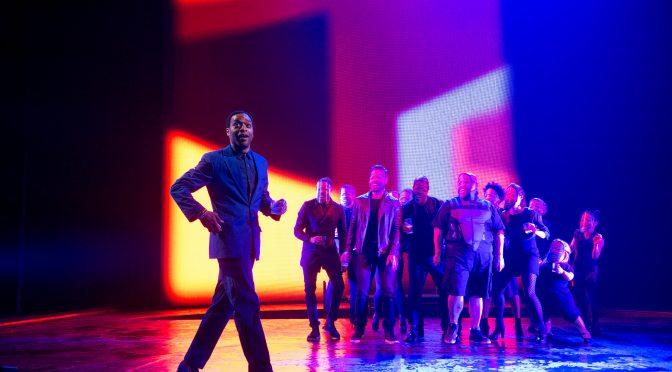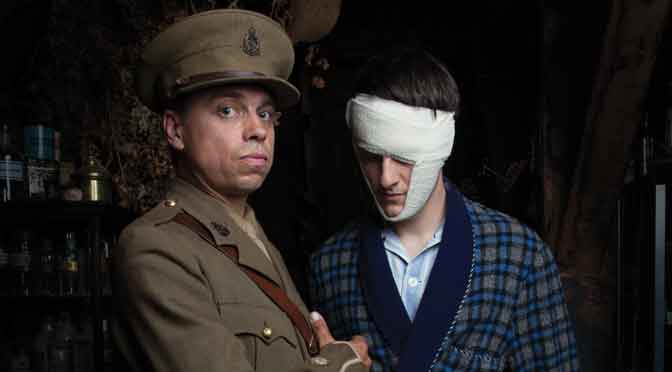Howard Brenton makes a return to Shakespeare’s Globe with a new work, the accessible and entertaining Doctor Scroggy’s War, which opened last night. Typical of the venue’s strong commitment to contemporary writing, it also serves to commemorate this year’s anniversary of the start of the First World War.
The play tells the story of two battles against adversity. Jack Twigg, a bright working class boy, enlists in the army, becoming a “temporary gentleman”, allowing Brenton to examine class and patriotism in one swoop. And secondly, there is the story of the real life Dr Harold Gillies, a pioneer in plastic surgery and a remarkable man who fought to heal the minds, as well as the faces, of his patients disfigured in conflict.
There can be few aspects of the War that haven’t been explored by dramatists. Brenton seems to embrace the predictable, a dangerous move, having fun with incompetent toffs and adding a liberated heroine for Jack’s love interest that wouldn’t be amiss in Downton Abbey. Humour is aimed for but too often the plot overrides the jokes. For all director John Dove’s speedy approach, the action feels a little slow at times.
Having worked himself into something of a hole, Brenton does a good job of making the second half much more interesting. To the rescue is Gillies and his alter ego Doctor Scroggy, a caricature Scot who brings fun to the hospital with am dram and alcohol. Gillies explores new techniques in surgery and Brenton becomes more novel as well; looking into questions of identity in an unsentimental fashion and highlighting the fact that, despite their sacrifice, these soldiers often had no regrets.
The dialogue is irreverent – Brenton has fun with the language of the period but this is a joke that wears thin. An adventurous scene that depicts a barrage before going over the top of the trenches is better. Most impressive are direct addresses to the audience, perfect for the Globe, that provide a connection with the characters that is strangely absent as we watch the bare bones of events.
None of these reservations detract from a fine production. The music from William Lyons is of note. Some performances are, deliberately, broad. Credit to William Featherstone as Jack, especially with his face bandaged (believe me, that’s not a plot spoiler) as well as Joe Jameson as Jack’s friend Ralph. Paul Rider stands out as Field Marshall French, although I suspect the role is easy work for such a talented, well cast actor. Final applause goes to James Garnin, who takes on the title role with spirit doing justice to Gillies, whose achievements and eccentricities save the play.
Until 10 October 2014
www.shakespearesglobe.com
Photo by Bronwen Sharp
Written 18 September 2014 for The London Magazine


